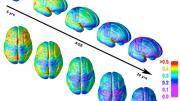President Claudine Gay, who was named president in December 2022, assumed office last July 1, and was formally installed in a Harvard Yard ceremony on September 29, today announced her resignation. Provost Alan Garber will serve as interim president.
Gay’s message to the community reads:
It is with a heavy heart but a deep love for Harvard that I write to share that I will be stepping down as president. This is not a decision I came to easily. Indeed, it has been difficult beyond words because I have looked forward to working with so many of you to advance the commitment to academic excellence that has propelled this great university across centuries. But, after consultation with members of the Corporation, it has become clear that it is in the best interests of Harvard for me to resign so that our community can navigate this moment of extraordinary challenge with a focus on the institution rather than any individual.
It is a singular honor to be a member of this university, which has been my home and my inspiration for most of my professional career. My deep sense of connection to Harvard and its people has made it all the more painful to witness the tensions and divisions that have riven our community in recent months, weakening the bonds of trust and reciprocity that should be our sources of strength and support in times of crisis. Amidst all of this, it has been distressing to have doubt cast on my commitments to confronting hate and to upholding scholarly rigor—two bedrock values that are fundamental to who I am—and frightening to be subjected to personal attacks and threats fueled by racial animus.
I believe in the people of Harvard because I see in you the possibility and the promise of a better future. These last weeks have helped make clear the work we need to do to build that future—to combat bias and hate in all its forms, to create a learning environment in which we respect each other’s dignity and treat one another with compassion, and to affirm our enduring commitment to open inquiry and free expression in the pursuit of truth. I believe we have within us all that we need to heal from this period of tension and division and to emerge stronger. I had hoped with all my heart to lead us on that journey, in partnership with all of you. As I now return to the faculty, and to the scholarship and teaching that are the lifeblood of what we do, I pledge to continue working alongside you to build the community we all deserve.
When I became president, I considered myself particularly blessed by the opportunity to serve people from around the world who saw in my presidency a vision of Harvard that affirmed their sense of belonging—their sense that Harvard welcomes people of talent and promise, from every background imaginable, to learn from and grow with one another. To all of you, please know that those doors remain open, and Harvard will be stronger and better because they do.
As we welcome a new year and a new semester, I hope we can all look forward to brighter days. Sad as I am to be sending this message, my hopes for Harvard remain undimmed. When my brief presidency is remembered, I hope it will be seen as a moment of reawakening to the importance of striving to find our common humanity—and of not allowing rancor and vituperation to undermine the vital process of education. I trust we will all find ways, in this time of intense challenge and controversy, to recommit ourselves to the excellence, the openness, and the independence that are crucial to what our university stands for—and to our capacity to serve the world.
A separate message from the Harvard Corporation followed her announcement:
With great sadness, we write in light of President Claudine Gay’s message announcing her intention to step down from the presidency and resume her faculty position at Harvard.
First and foremost, we thank President Gay for her deep and unwavering commitment to Harvard and to the pursuit of academic excellence. Throughout her long and distinguished leadership as Dean of Social Science then as Dean of the Faculty of Arts and Sciences – where she skillfully led the FAS through the COVID-19 pandemic and pursued ambitious new academic initiatives in areas such as quantum science and inequality – she demonstrated the insight, decisiveness, and empathy that are her hallmark. She believes passionately in Harvard’s mission of education and research, and she cares profoundly about the people whose talents, ideas, and energy drive Harvard. She has devoted her career to an institution whose ideals and priorities she has worked tirelessly to advance, and we are grateful for the extraordinary contributions she has made – and will continue to make – as a leader, a teacher, a scholar, a mentor, and an inspiration to many.
We are also grateful to Alan M. Garber, Provost and Chief Academic Officer, who has served with distinction in that role for the past twelve years – and who has agreed to serve as Interim President until a new leader for Harvard is identified and takes office. An economist and a physician, he is a distinguished and wide-ranging scholar with appointments at Harvard Medical School, Harvard’s Faculty of Arts and Sciences, the Harvard Kennedy School of Government, and the Harvard T.H. Chan School of Public Health. We are fortunate to have someone of Alan’s broad and deep experience, incisive judgment, collaborative style, and extraordinary institutional knowledge to carry forward key priorities and to guide the university through this interim period.
These past several months have seen Harvard and higher education face a series of sustained and unprecedented challenges. In the face of escalating controversy and conflict, President Gay and the Fellows have sought to be guided by the best interests of the institution whose future progress and well-being we are together committed to uphold. Her own message conveying her intention to step down eloquently underscores what those who have worked with her have long known – her commitment to the institution and its mission is deep and selfless. It is with that overarching consideration in mind that we have accepted her resignation.
We do so with sorrow. While President Gay has acknowledged missteps and has taken responsibility for them, it is also true that she has shown remarkable resilience in the face of deeply personal and sustained attacks. While some of this has played out in the public domain, much of it has taken the form of repugnant and in some cases racist vitriol directed at her through disgraceful emails and phone calls. We condemn such attacks in the strongest possible terms.
The search for a new president of the university will begin in due course. We will be in further touch about the process, which will include broad engagement and consultation with the Harvard community in the time ahead.
For today, we close by reiterating our gratitude to President Gay for her devoted service to Harvard, as well as to Provost Garber for his willingness to lead the university through the interim period to come. We also extend our thanks to all of you for your continuing commitment to Harvard’s vital educational and research mission – and to core values of excellence, inclusiveness, and free inquiry and expression. At a time when strife and division are so prevalent in our nation and our world, embracing and advancing that mission – in a spirit of common purpose -- has never been more important. We live in difficult and troubling times, and formidable challenges lie ahead. May our community, with its long history of rising through change and through storm, find new ways to meet those challenges together, and to affirm Harvard’s commitment to generating knowledge, pursuing truth, and contributing through scholarship and education to a better world.
Both messages contain striking language about the behind-the-scenes attacks and exchanges during recent weeks: Gay’s reference to “personal attacks and threats fueled by racial animus” and the Corporation’s language on “repugnant and in some cases racist vitriol directed at her through disgraceful emails and phone calls. We condemn such attacks in the strongest possible terms.”
The news follows a head-turning and brutal three months beginning October 7, just eight days after her installation, when, in the wake of the Hamas terrorist assault on Israel, a statement by Harvard student groups blamed the attack on Israeli government behavior, setting off a firestorm of criticism, and the first in a series of statements by Gay that successively modified the way she laid out commitments to free speech within the academy versus rising concern about intolerance, harassment, and antisemitic and Islamophobic behaviors that violate community standards. When she and fellow MIT and University of Pennsylvania presidents Sally Kornbluth and Liz Magill testified before a U.S. House of Representatives hearing on December 5, their formal, legalistic responses to questions about whether calling for genocide was permissible under campus speech rules sparked furious criticism. The MIT Corporation issued a statement backing Kornbluth; Magill and the chair of Penn’s trustees resigned on December 9.
The Harvard Corporation issued a statement on December 12 backing Gay, but expressed reservations about the University’s, and Gay’s initial statement after October 7—and raised the additional matter of concerns about whether her academic writings properly cited other scholars’ research. She subsequently modified a few journal articles and has since amended her dissertation (read the Crimson’s report here).
Whatever the cumulative effects, Gay, the Corporation, or perhaps both have now decided that her presidency is no longer tenable, and so it has come to an end.
Check back for updates.









